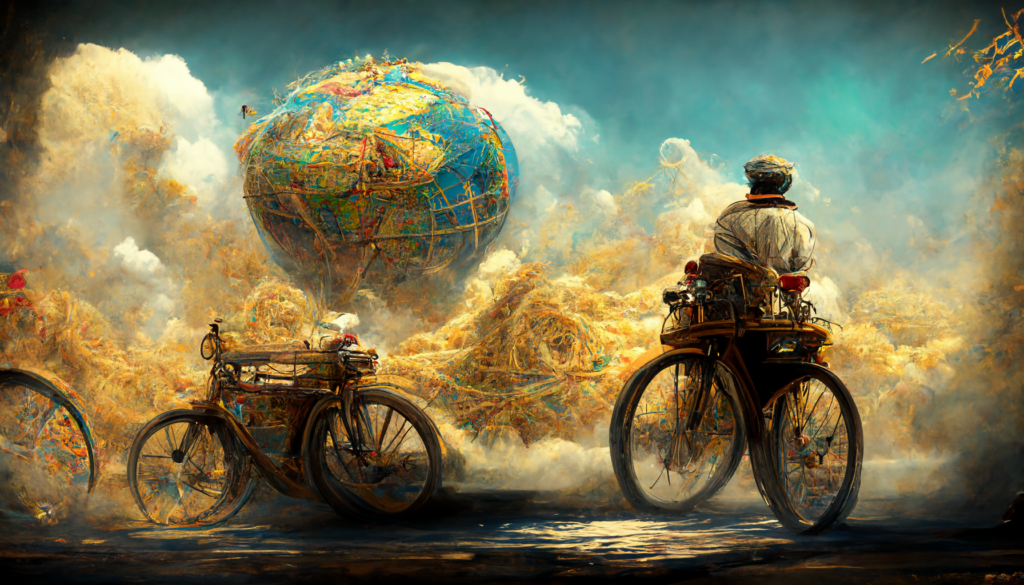After a summer rich in emotions and discoveries, will CreativeTech promote sobriety, the new mantra of the fall? When geopolitics joins climate issues to urge us to be sober with energy—the mixed imaginations of reductions, shortages, restrictions, fear of running out are combined with those of the need to innovate, the ability to find solutions, collective and individual reasoned action ….
If the famous Meadows report of 1972 reminds us of the consequences of exponential growth in a finite world, let us not succumb to the fatalistic temptation. At least not just yet. The instinct of art is to help us look at things differently and to lead us along side roads. And with all due respect to Baudelaire, at a time of crisis, it is legitimate to ask the question: is it still time to get drunk?
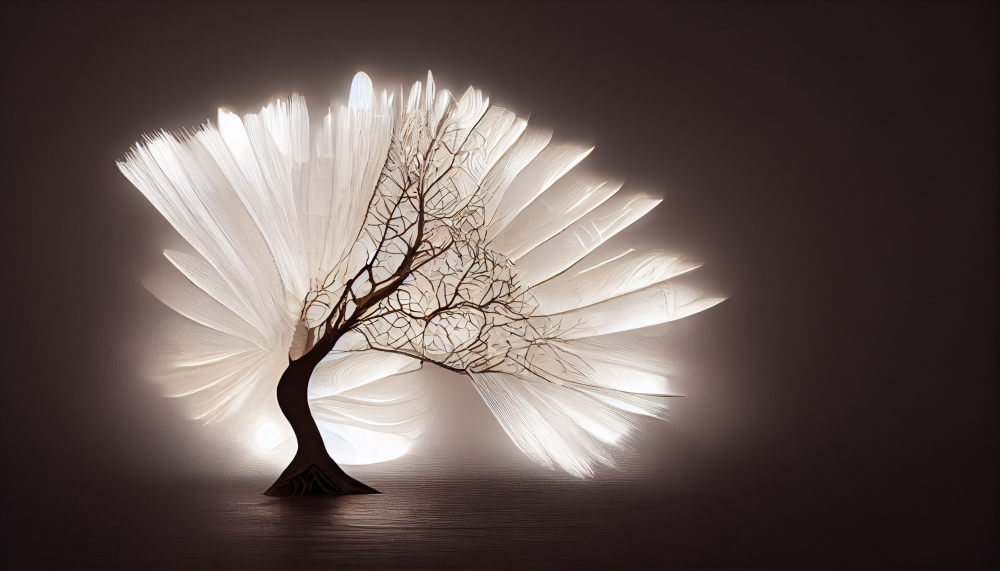
Sobriety and frugality
- Sobriety (from the Latin word sobrietas) means temperance in the use of wine. A strange use of a word originally associated with wine, with drunkenness. But for a more contemporary meaning, CreativeTech aligns itself with the definition proposed by Eloi Laurent, Researcher at the Observatoire français des Conjonctures économiques):
“The satisfaction of reasoned needs by means of limited resources.”
- Frugality (from the Latin word frugalitas, the gathering of fruit) is positioned as a synonym for sobriety, with perhaps a slight variation: etymologically, there is no notion of tempering anything in frugality, but rather of choosing an alternative.
So, what if we were to be frugal rather than sober?
Remove, reduce, empty. What if we imagined our consumption infrastructures without us? This is what the artist Geoffroy de Crécy, Etienne’s brother, proposed in his animated short film, Empty Places (2020), made before the pandemic and presented during the Némo biennial at the CENTQUATRE Paris, Au-delà du réel? He imagines all the key places in our society (supermarkets, nightclubs, stock markets) without us humans. What is left then? Machines, lonely automatons pulsing a frantic algorithm. Faced with this overflow of too much emptiness, what do we really need?
Is slow dancing rock’n’roll ?
Born at the end of the 1980s, the slow-life movement advocates—it’s all in the title 😁—a slow lifestyle to reconnect with one’s body and with others. Just like the Danish “hygge” (pronounced “hoo-gah”), this movement also connects us to nature! In the technological age, it is becoming increasingly difficult to reconnect with our natural temporalities and cycles, even if green techs are trying to create new sustainable anchors. So, does being slow means being bored?
Certainly not! Let’s regain our calm (yes, it’s essential) thanks to Onyo and its immersive experiences that are like ritual meditations. In their experience L’Arbre-Soleil, the duo Charlotte-Amélie Veaux and Yann Garreau, propose a sound meditation session, headphones on and facing a strange luminous tree.
Participants are invited to close their eyes and listen—in spatialized sound—and to revive the light of this intriguing tree, whose light pulses to the rhythm of the story.
The work is intimately multisensory and summons a different imagination in each person, which we then enjoy debriefing at the end of the twenty minutes or so that this escape constitutes.
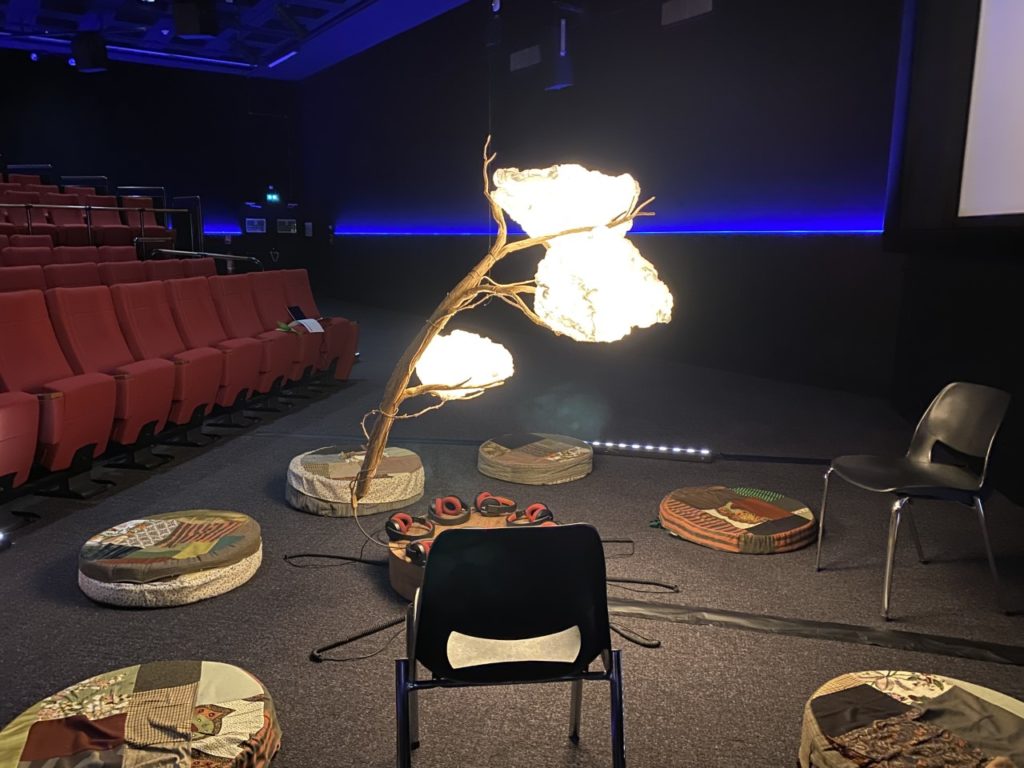
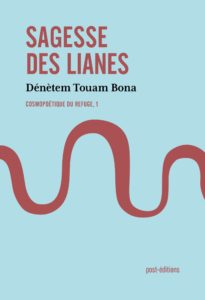
The Art of being sober: does the future belong to artists?
Imagining, writing, painting, dancing, singing, acting are all artistic practices that make us dream, travel, escape beyond the physical confines of our own home and with our own calories, our inner fire, as our only driving energy. Therefore, could increasing our mastery of the arts be the way to sobriety? Is this not a formidable program for the future, where culture remains a source of infinitely renewable energy?
Yes, because culture also helps us to question and invent other relationships with the world, with living beings, with our biosphere. Like the astrophysicist and philosopher Aurélien Barrau asked on France Inter, are we dreaming of artists, poets, and philosophers to take control of the Polytechnics? Harmony, harmony, when you hold us.
And what if the first answers were to be found in the Cosmopoetics of Dénétem Touam Bona? In his book, Wisdom of the Lianes (Sagesse des Lianes), the author invites us to learn many lessons from the know-how and savoir-vivre of lianas, a voluble plant par excellence endowed with a formidable gift for interweaving. Come on, who’s going to come and swing from vine to vine with us?
Invitation to non-travel
“Do you have to travel to be happy?” This is the impertinent question posed by the EDF Group Foundation, which after the exhibition “Fake news: Art, fiction, lies” —of which CreativeTech was co-curator—is taking the opposite view of our desire for distant adventures to stimulate our imaginations in an exhibition that runs until 29 January 2023.
- The question is an irritating one. Or at least, it seems to bother us? Today, we know only too well: sobriety rhymes with a reduced carbon footprint. So, forget the plane and the incessant round trips, and perhaps we should learn to marvel at our surroundings once again. The exhibition presents Richard, Camille Martin, and Marine Ponthieu’s Le Voyage au but du jardin: an almost sociological journey of three days to cycle around their garden to re-learn the fascination of proximity. Sober but intoxicating.
To symbolize the journey into a world in decline, the exhibition also features “Going Nowhere 1.5” by British artist Simon Faithfull, a work showing the artist circling a stretch of sand from the air and then gradually being swallowed up by the sea.
The exhibition explores various themes and, above all, the evolution of our travel customs through various multisensory media. Sisyphus, get out of this body: happiness is within walking distance; “luxury, calm and pleasure”.
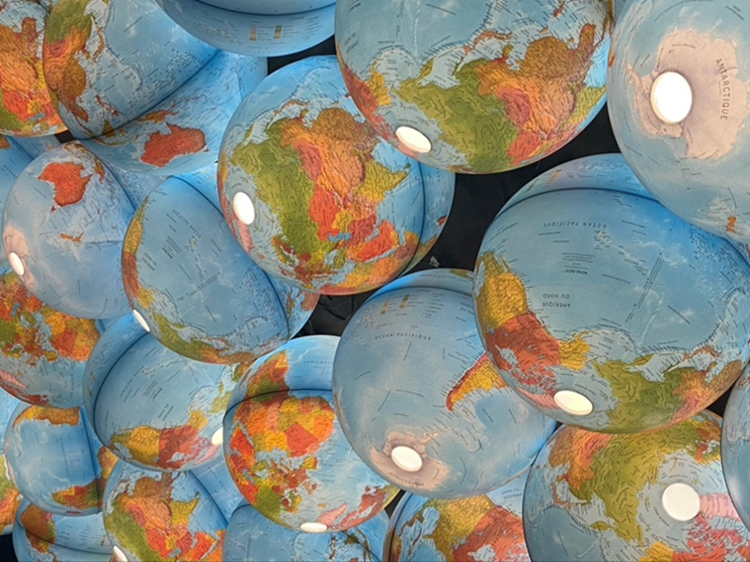
Towards sober, non-empty imaginations !
They may seem far away, the Vernian imaginary! If it is no longer time to go Around the World in 80 Days or to leave 20,000 Leagues Under the Sea, it is time to change our imaginations to make them more positive.
And who better than artists to define and shape the imaginations that make up and run through us? The duo ORAN, comprising Morgane Clerc and Florian Clerc, poetically deals with and questions urban imaginaries through installations and performances, with their Observatory of Excess and Scarcity (OEP), 2020-2022, articulated in several axes and addressing contemporary issues related to the Anthropocene and its paradoxes. A social and artistic investigation that challenges the logic of consumerism and transposes the object of pleasure …. A vast program.
Changing imaginations for a sustainable world is also what the AnthropoScènes festival is working on with design fiction workshops to clear the way for alternative and positive futures through fiction. By imagining the future in the manner of science fiction novels, it is possible to open new avenues of exploration and demystify possible technologies: a resolutely interdisciplinary approach that we will need more and more!
So sober, or frugal? At CreativeTech, we continue to invent and collect experiences that unlock new sensations thanks to the 0s and 1s, to the performative arts, to the ever-greener machines, to the techs that make us ever more beautiful…. It’s over here for our tracks stemming from the metaverse or from observation with a biomimetic sauce!
